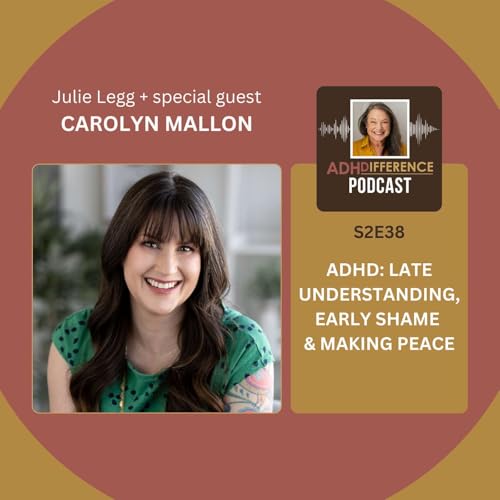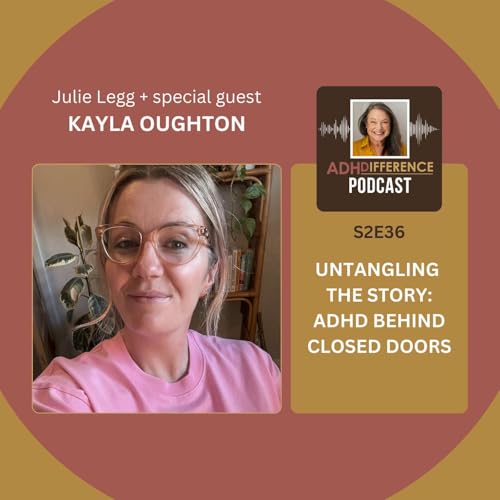
ADHDifference
Failed to add items
Sorry, we are unable to add the item because your shopping cart is already at capacity.
Add to basket failed.
Please try again later
Add to Wish List failed.
Please try again later
Remove from Wish List failed.
Please try again later
Follow podcast failed
Unfollow podcast failed
-
Narrated by:
-
By:
-
Julie Legg
About this listen
ADHDifference challenges the common misconception that ADHD only affects young people. Diagnosed as an adult, Julie Legg interviews guests from around the world, sharing new ADHD perspectives, strategies and insights.
ADHDifference's mission is to foster a deeper understanding of ADHD by sharing personal, relatable experiences in informal and open conversations. Choosing "difference" over "disorder" reflects its belief that ADHD is a difference in brain wiring, not just a clinical label.
Julie is the author of The Missing Piece: A Woman's Guide to Understanding, Diagnosing, and Living with ADHD (HarperCollins NZ, 2024) and ADHD advocate.
Episodes
-
 31 mins
31 minsFailed to add items
Sorry, we are unable to add the item because your shopping cart is already at capacity.Add to basket failed.
Please try again laterAdd to Wish List failed.
Please try again laterRemove from Wish List failed.
Please try again laterFollow podcast failed
Unfollow podcast failed
-
 52 mins
52 minsFailed to add items
Sorry, we are unable to add the item because your shopping cart is already at capacity.Add to basket failed.
Please try again laterAdd to Wish List failed.
Please try again laterRemove from Wish List failed.
Please try again laterFollow podcast failed
Unfollow podcast failed
-
 38 mins
38 minsFailed to add items
Sorry, we are unable to add the item because your shopping cart is already at capacity.Add to basket failed.
Please try again laterAdd to Wish List failed.
Please try again laterRemove from Wish List failed.
Please try again laterFollow podcast failed
Unfollow podcast failed
No reviews yet
In the spirit of reconciliation, Audible acknowledges the Traditional Custodians of country throughout Australia and their connections to land, sea and community. We pay our respect to their elders past and present and extend that respect to all Aboriginal and Torres Strait Islander peoples today.


